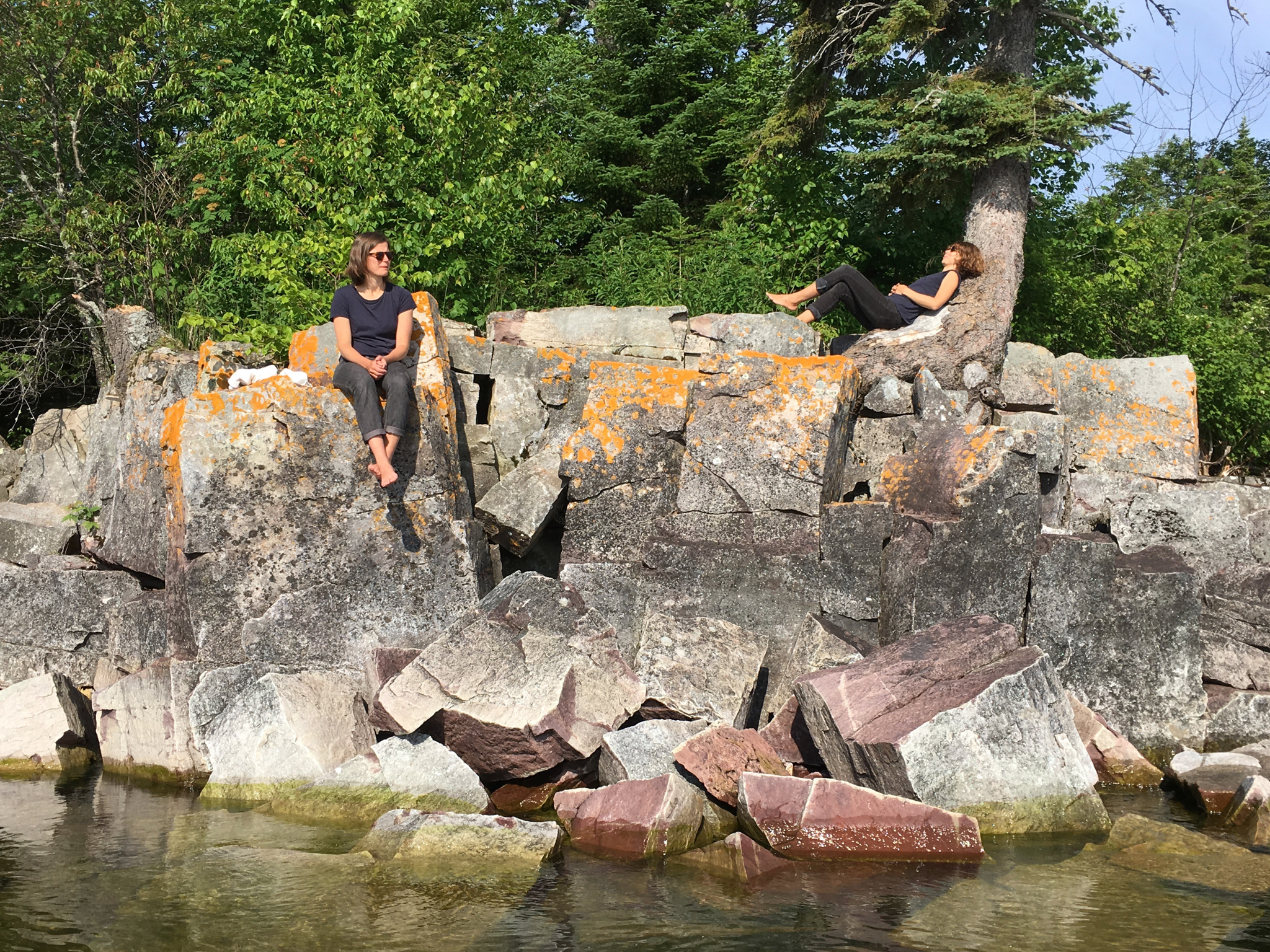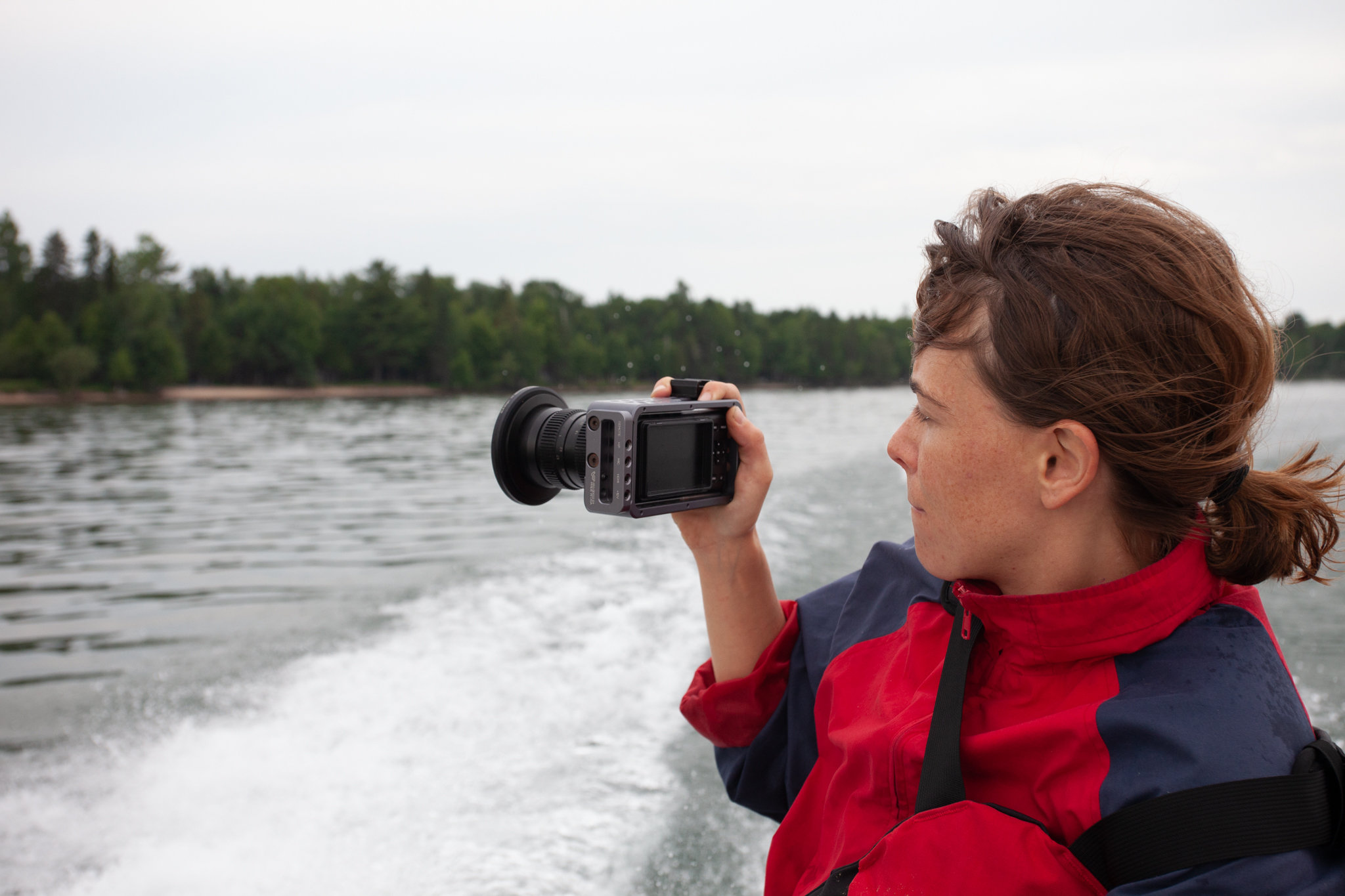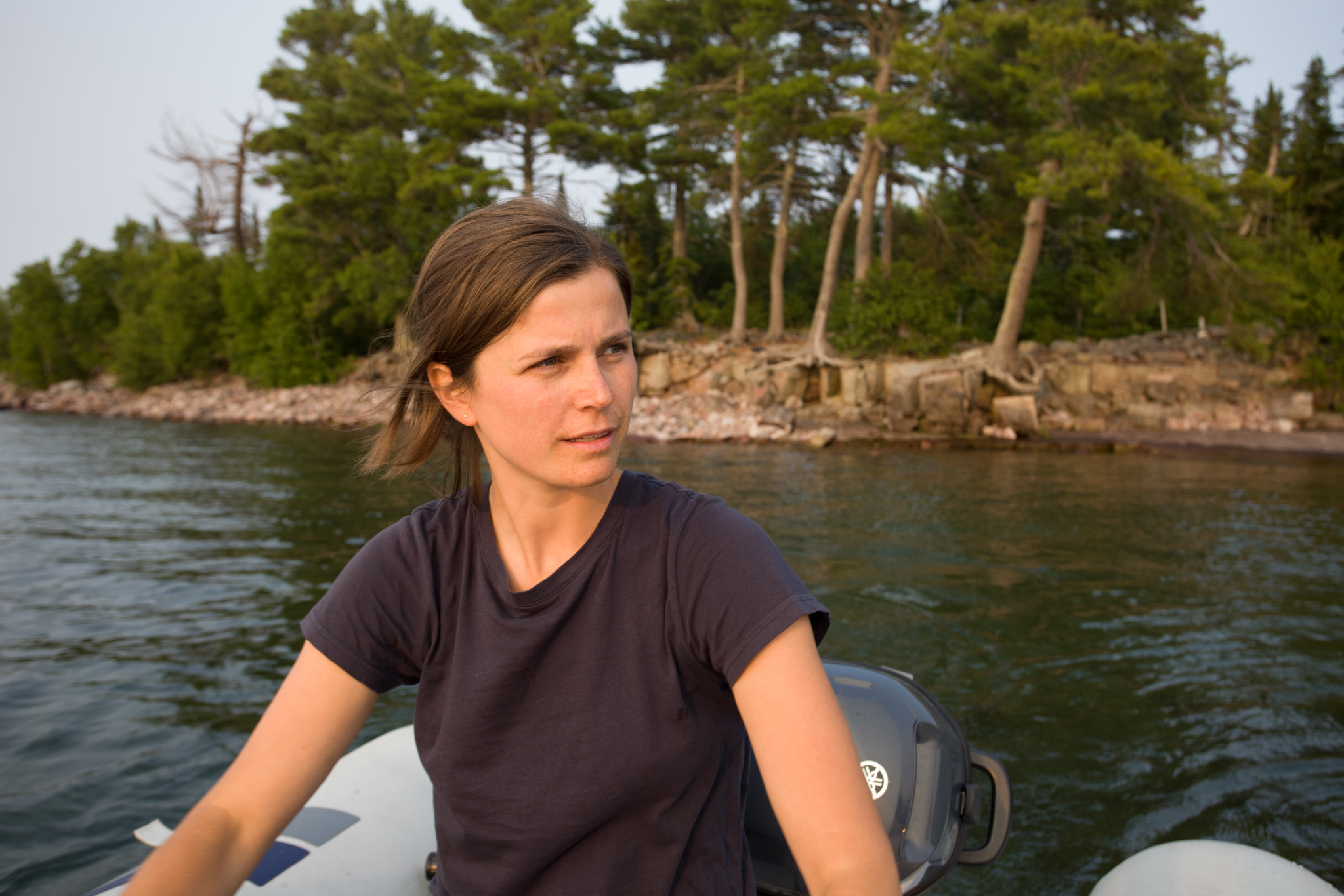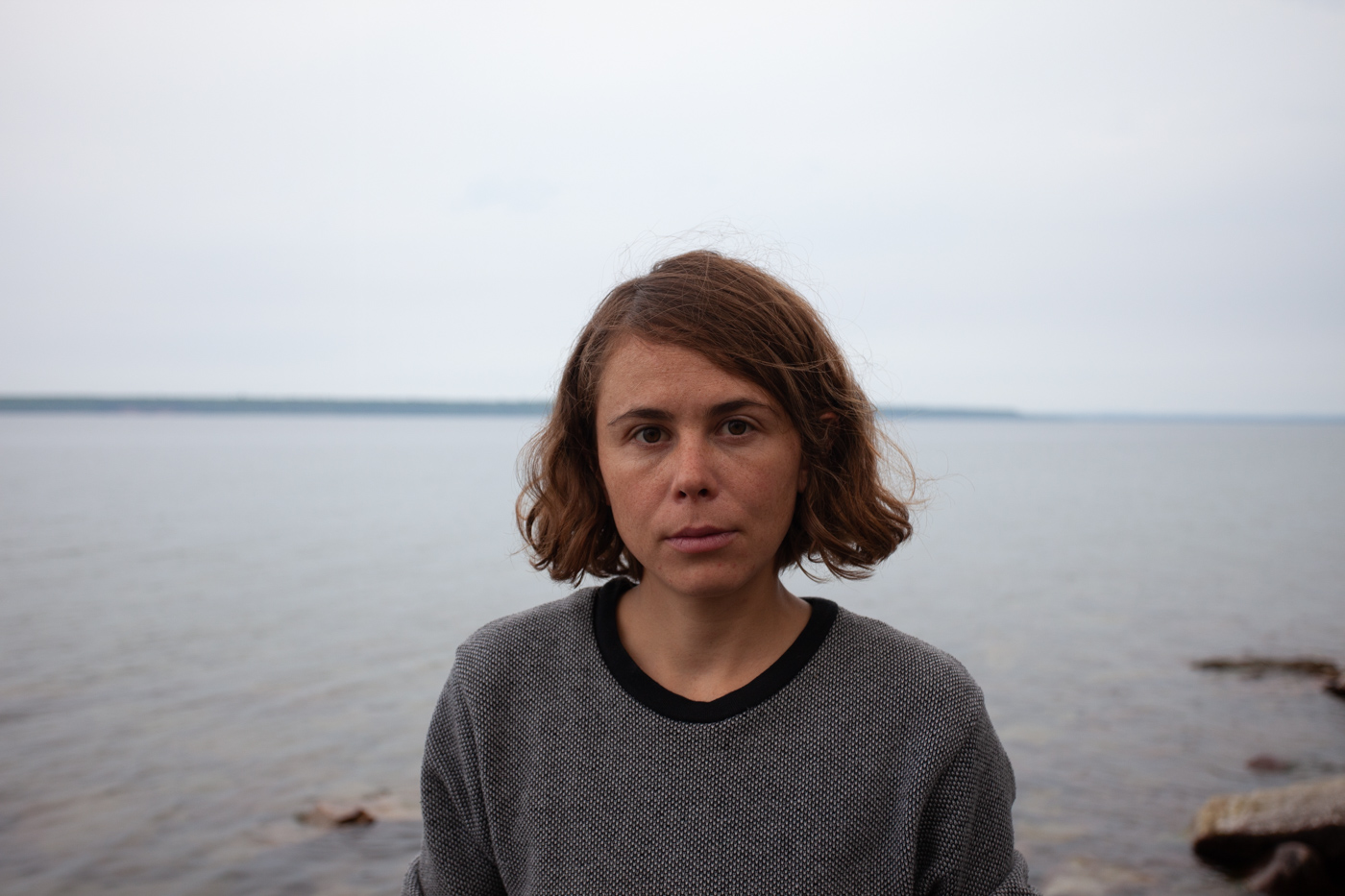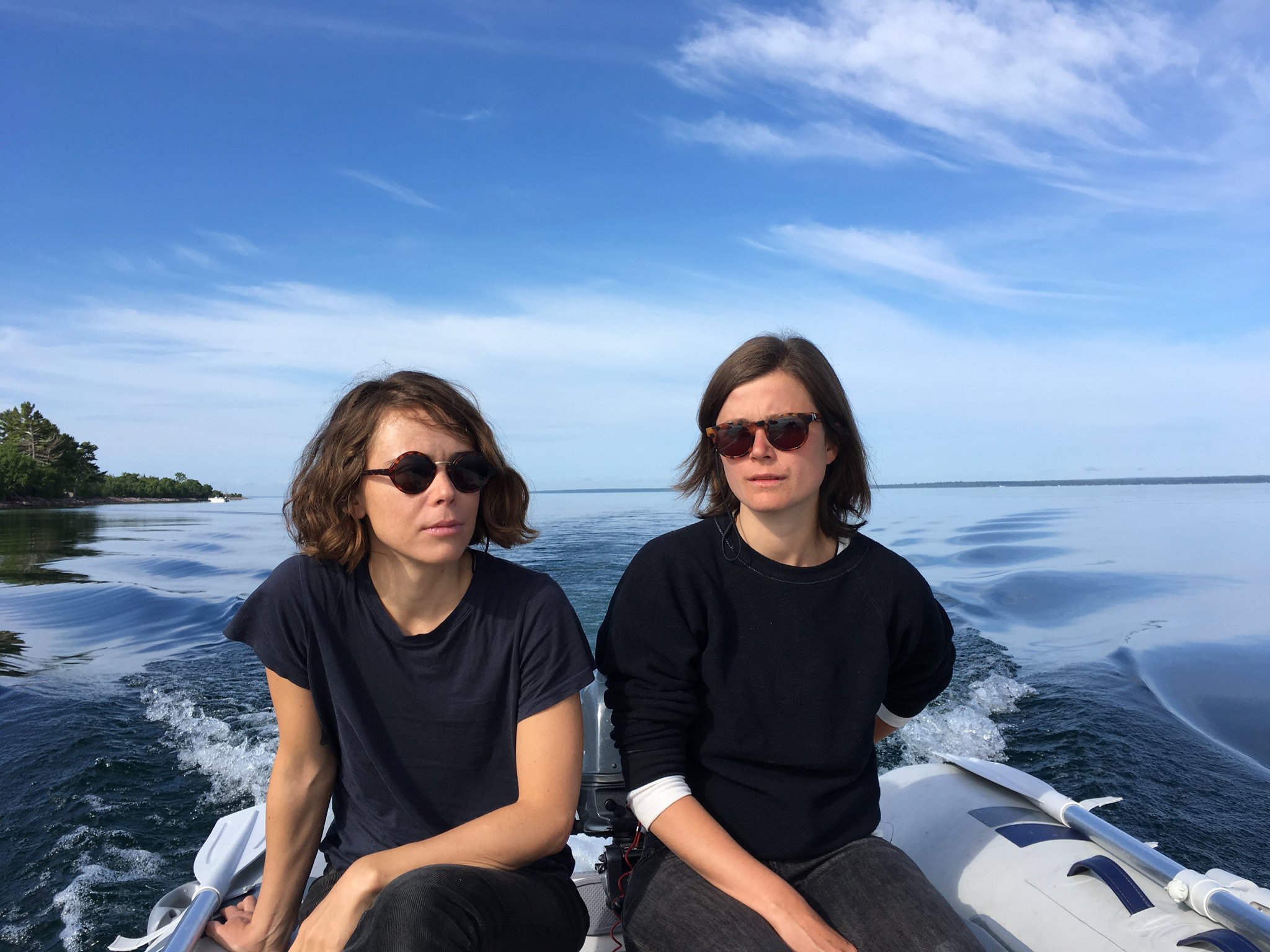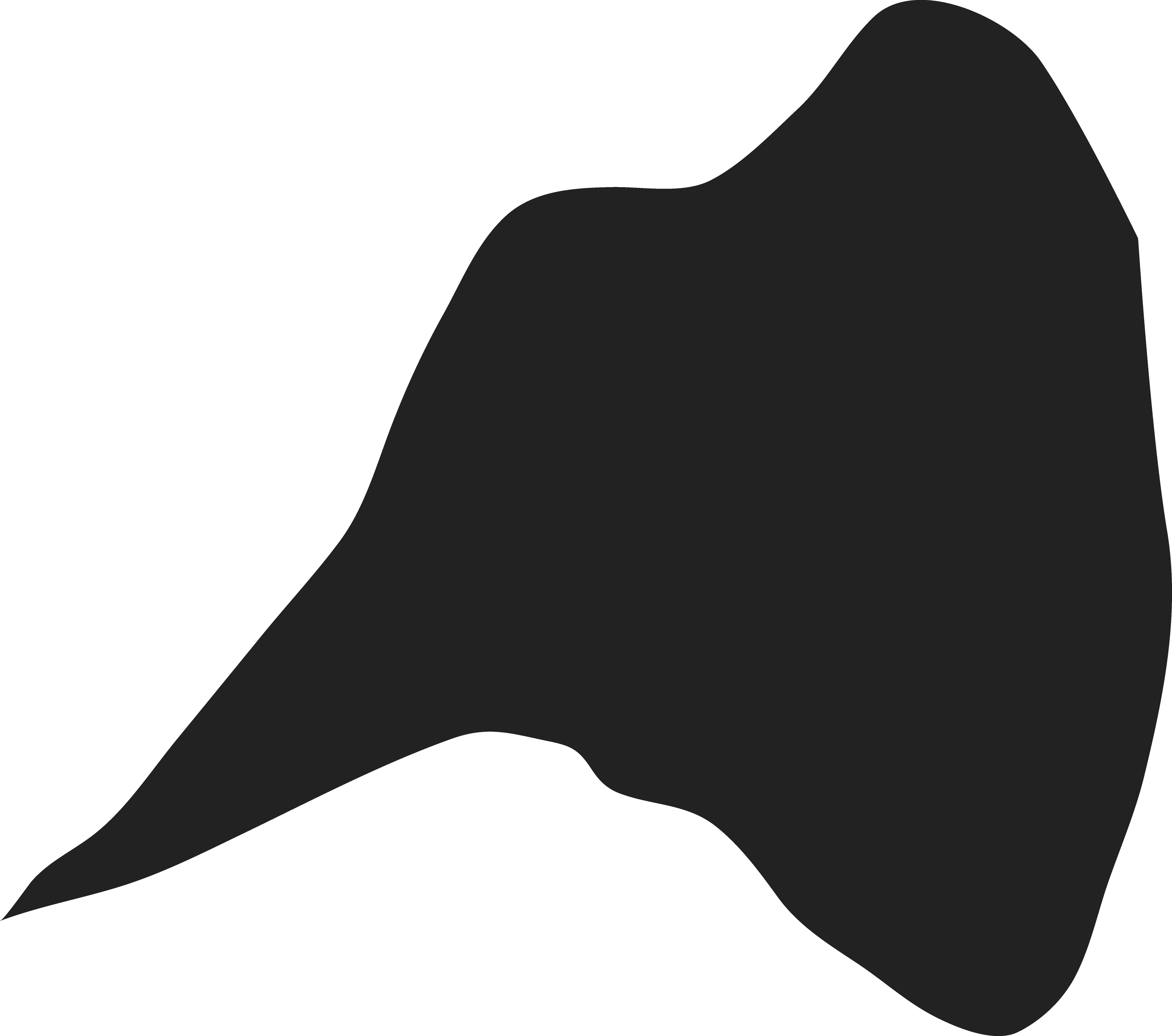Julieta Aguinaco and Sarah Demoen met in 2013 at the Dutch Art Institute, and have been working collaboratively since. In her individual practice, Julieta focuses on non-linearity, questioning where to place things that do not match the hierarchical, categorical system that dominates our ways of knowing. She researches the geological history of the earth and the land we walk on and tries to destabilize the notion of private property in light of non-western cosmovisions. Sarah has an interest in the history of resistance and alternative ways of institutionalizing. In this, she tries to critically disrupt preconceived notions about art, politics (social movements) and ownership, primarily through language.
In their joint practice, Julieta and Sarah combine their respective research interests into a dynamic discourse resulting in writing and performance. In a constant to and fro, they discuss their issues of concern directing critical questions at each other and the world, driven by a strong focus on process. They take on roles: where Julieta is the artist, Sarah is the anti-artist; where Julieta looks for visibility, Sarah is looking for abandoned places outside of the attention economy. Together, they create a philosophical form of theater, where poetics and fiction could be a way to withdraw from the linear world. They are convinced that alternatives can be found in the paradoxes, in non-linearity; in that what’s easily ignored.
An important question running through their work is: what can be named and known without undoing or destroying that same thing? In previous works they discussed the desert landscape and the influence of human colonization; the question: ‘you don’t find a different paradigm, we make it!’ and the idea of utopia as immanent in the here and now, and not as some far-fetched idea in the future.
When You Cut into the Present, the Future Leaks Out (working title)
’It is not yours,’ the one-eyed woman said with the mildness of utter certainty. ‘Nothing is yours. It is to use. It is to share. If you will not share it you cannot use it.’ (The Dispossessed, Ursula Le Guin)
The fresh water cephalopod could be an animal that lives in the depths of Lake Superior. It would have eight inky legs, a giant head, a glimmering opacity and the skills to survive in waters with a very low oxygen level. Its shape could be amorphous; radiating with pink, blue and yellow colors as the cephalopod takes on the role as the overarching umbrella for a small but vibrant community of corpuscles that constitute the shapeless blob. Creatures crawling, swimming and climbing through and over and into one another, sharing space and place without appropriating it. There is no pecking-order here, no room for dichotomies, no hierarchy. This lot can become anything and commit to everything. (i) At present, this taxon of cephalopods does not exist. Nor in the Great Lakes, nor in any other fresh water pool in the world. However, millions of years ago, the area where Rabbit Island is located used to be a shallow sea, with salt water. (ii) Who can claim then that there was never an octopus seen on the shores of Lake Superior?
What once was, could become again, and even grow beyond itself. Speculation and fictionalization offer a key for past, present and future to come together in a non-linear way; where diverse, collective forms of living and paradoxes are embraced. The way the not-yet-existent fresh water cephalopod would live, with and through multiple other organisms, constructs an image of what a possible future world could be. But to summon the fictive fresh water cephalopod into a future life form, a method is needed. We believe Rabbit Island is the place for developing that method as it has hardly been touched or modified by human hands.
American poet William S. Burroughs’ famous quote: ‘When you cut into the present, the future leaks out’, could bring that future cephalopod to life. The sentence refers to the cut-up technique in poetry and literature, where parts of text are literally cut out, mixed up and ordered into new texts. This aleatory method of collecting and rearranging pieces of the present through a creative process, allows for chance to enter the work, not in an undetermined way, but as a factor that doesn’t ignore the paradoxes inherent to existence. Paradoxes are often discarded as redundant, for in their complexity, they do not offer straightforward and easy answers. We believe that exactly in those paradoxes there might be some possibilities for a future ‘to leak out’. We do aim for a different future than the one at present: a future devoid of the consequences of global warming, devoid of the destructive forces of the neoliberal economy where 1% of the world population has access to all wealth, and devoid of an oversimplified vision of complex dimensions.
To collect the material for the cut up method, we will set up The RI-School - a place for epistemic disobedience. (iii) The RI-school will make it possible to take a class with plant and fish, soil and rock. It will organize courses, lectures and field trips on the island for H2O, nonvascular plants, vertebrates and anthropoids. We are aware that this way of gathering knowledge through a school is an anthropocentric, western manner, that will lead to bringing human-inspired subjective findings to the mainland. Also, many ‘alternative’ forms of knowledge are already inherent to this area as indigenous people have been roaming these waters for centuries. How can we – through this known educational format – learn from the island’s clarifying content? If we want to understand and translate an alternative knowledge, we need to epistemologically disobey; to deliberately undermine the western structures we have been brought up with. A rebelliousness towards that system of dual categorization, of hierarchy and ownership, we know and live in. Could this island give us a different understanding of the larger contingencies happening on the mainland?
Practically, the classes, seminars and field trips are documented through sound recording and our written notes. We will be recording some typical sounds of nature: wind in a tree, the flapping of a bird’s wings, hands digging a hole, the insect’s buzz, etc. Not to romanticize nature - with a beautiful sunset always comes a group of bloodsucking mosquitoes - but to give it a voice in the conversation. Also, we will record the noise we make during class, the sound of written words read out loud to the land, to the water, to each other. There will be discussions about forms of resistance in nature and culture alike, renewal through fictionalization, the potency of mimicry and theories of exit. The selected texts will handle the story of the non-existent fresh water cephalopod, they will question us setting up a school on an island without an invitation from that island, and whether to get to know each other is also to eventually destroy each other? Next to our own essays and scribbles and the island’s contributions, The Companion Species Manifesto: Dogs, People, and Significant Otherness by Donna Haraway will function as a basic textbook, as she talks of the impossibility to split between nature and culture. The Dispossessed by Ursula Le Guin will be another study-book as it deals with the discrepancy between two planets, one capitalist, earth-like, the other anarchist, arranged as a place of equality and solidarity. This overload of different materials is necessary to make the collection of present material for an aleatory purpose, constructing a constellation from which a possible future might leak out.
Since the island remained untouched by human colonization of land and resources, it symbolizes a pre-capitalist world and is therefore indispensable for research into different ways of living. As an epitome of larger society, its land, water and species have the capacity to re-map past, present and future. We think our collection of sound pieces and text, where nature and culture are protagonists alike, through the cut up technique, could bring that potential into the larger world, where there is a pressing need for a leak of another future than the one we are heading towards. We want that utopian cephalopod to become alive, not as some far-fetched forthcoming ideal, but here and now, starting at Lake Superior.
The final outcome is a soundscape which we will present in the small forest outside of the museum. The soundscape contains the information gathered through the RI-school, cut up and edited into complex layers of sound fragments containing text, different voices, recordings from the seminars and natural sounds form the island. This sound piece will enter into a conversation with the noises and voices that surround the museum. In addition, we will do a small performance as we will take a class with the local ‘fouled’ nature. Inside the museum, a publication with our notes and texts and drawings from the time on the island will form another element of the work. This ‘textbook’ is freely available, for as mentioned in the above quote: ‘nothing is ever yours, it is to use, to share’. What else is the point of working towards a future ideal if it is not shared, used and altered; no one owns the future.
